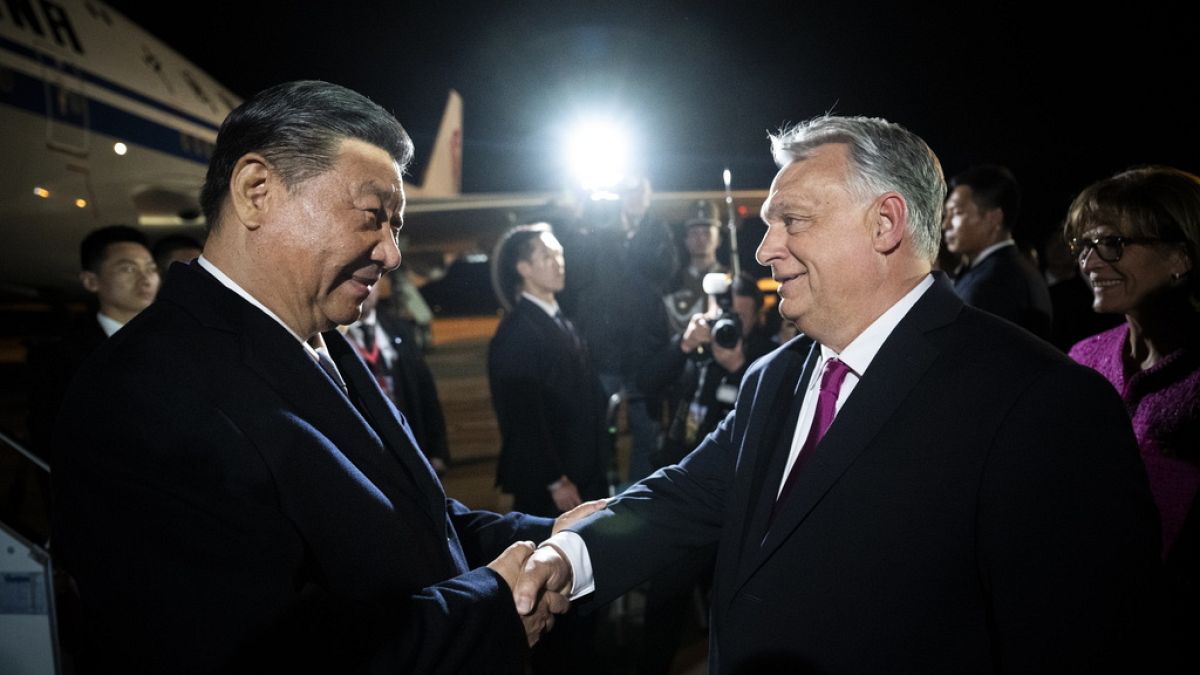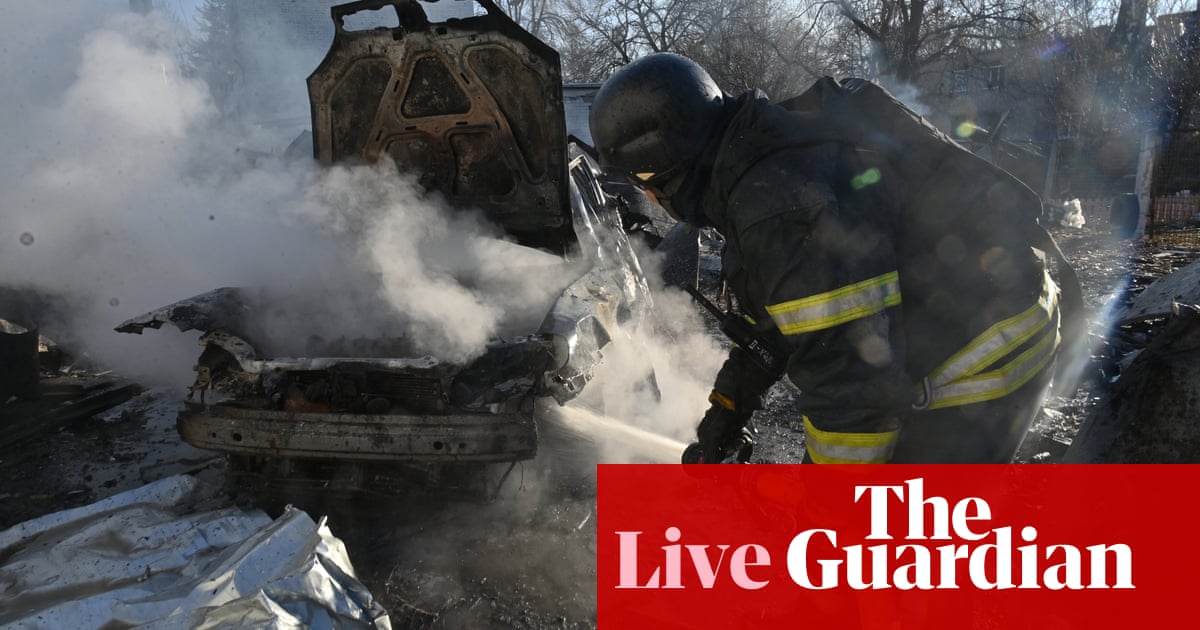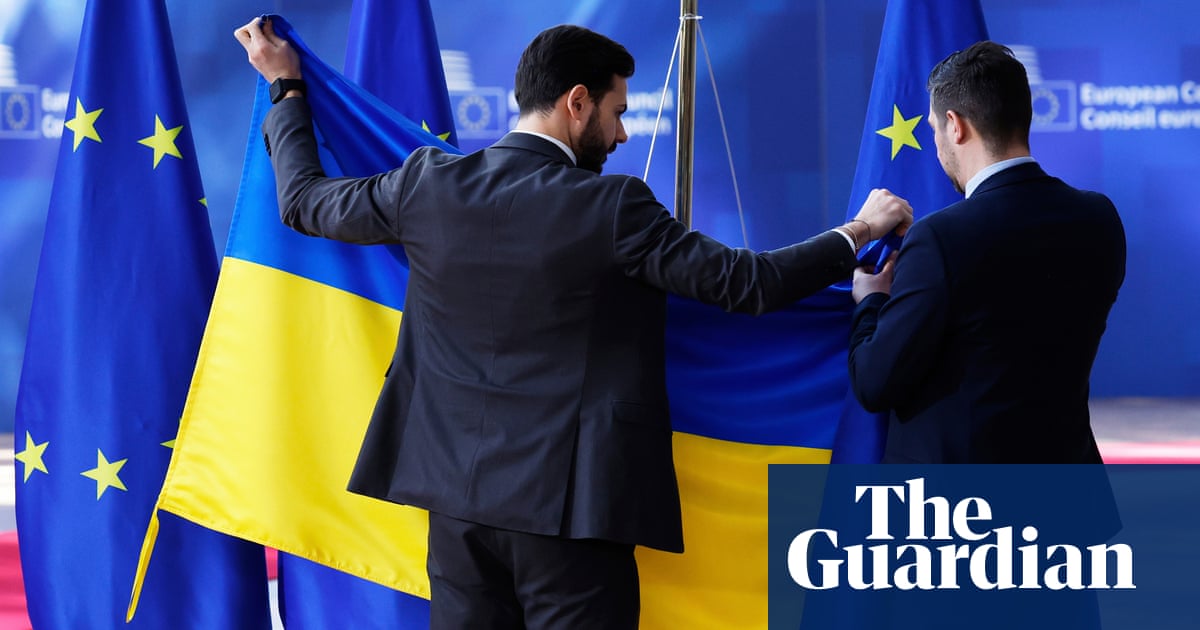Chinese President Xi Jinping visits Hungary on European tour

China’s leader is anticipated to solidify several agreements with Hungarian Prime Minister Viktor Orbán, further cementing Beijing’s economic presence in the region.
Chinese President Xi Jinping arrived in Hungary on Wednesday, marking the end of his five-day European tour.
His visit is set to solidify numerous agreements with Prime Minister Viktor Orbán, further strengthening China’s regional economic influence.
This contrasts with the stance of other EU nations, which are seeking to reduce their reliance on the world’s second-largest economy.
During his stop in Paris, French President Emmanuel Macron and EU Commission chief Ursula von der Leyen urged Xi Jinping to promote more balanced trade with Europe and use his influence on Russia to address the conflict in Ukraine.
Scheduled to spend two nights in Budapest, Xi will meet with Orbán and Hungarian President Tamás Sulyok to discuss potential Chinese investments in Hungary.
Despite mainstream European leaders’ protective measures against China, Budapest has actively pursued economic ties with Beijing. In addition to trade and investment, China offered cooperation on public security and law enforcement to Hungary, as reported by the official Xinhua news agency.
Orbán, known for his nationalist-populist politics, positioned Hungary as the first country in the EU bloc to engage in Xi’s Belt and Road Initiative.
Budapest’s diplomatic and trade relations with autocratic governments outside the EU and NATO underscore its balancing act between regional alliances and economic partnerships, say observers.
Prior to Xi’s visit, Hungarian Foreign Minister Péter Szijjártó announced plans to sign at least 16 bilateral agreements, highlighting the historic significance of Xi’s inaugural visit to Hungary as president.
The deals may entail Belt and Road expansion, potentially encompassing infrastructure and energy investments.
Szijjártó noted China was Hungary’s biggest foreign investor in 2023.
Xi’s arrival in Budapest follows his visit to Belgrade, where he concluded an agreement emphasizing a “shared future” with Serbia, another country perceived as friendly to Russia.
While China claims neutrality in the Ukraine conflict, it has refrained from labelling Russia’s actions as an invasion, facing criticism for allegedly enhancing Russia’s military capabilities.
Hungary, despite condemning the invasion, has resisted EU sanctions against Moscow and abstained from providing military support to Kyiv.
Xi and Orbán are expected to discuss the Ukraine crisis, given Hungary’s proximity to the conflict zone.
Hungary has urged China to take a leading role in facilitating peace talks between Russia and Ukraine, endorsing a peace plan proposed by China.
Related
Zelenskyy reiterates call for air truce after huge Russian attack…
We need Russia to stop attacks, Zelenskyy says, backing calls for truce in air, at seaUkrainian president Volodymyr Zelenskyy has responded to overnight attacks
Europe scrambles to rearm as Trump threatens security guarantees and…
CNN — European leaders have vowed to rearm the continent at historic emergency talks h
Russia launches ‘massive’ attack on Ukraine after Europe rushes to…
Ukraine's energy and gas infrastructure came "under massive missile and drone shelling" by Russia on Friday, a Ukrainian minister said."The energy and gas infra
American severance may be averted, but Europe’s leaders must fear…
With a mixture of regret, laced with incredulity, European leaders gathered in Brussels to marshal their forces for a power struggle not with Russia, but with t












